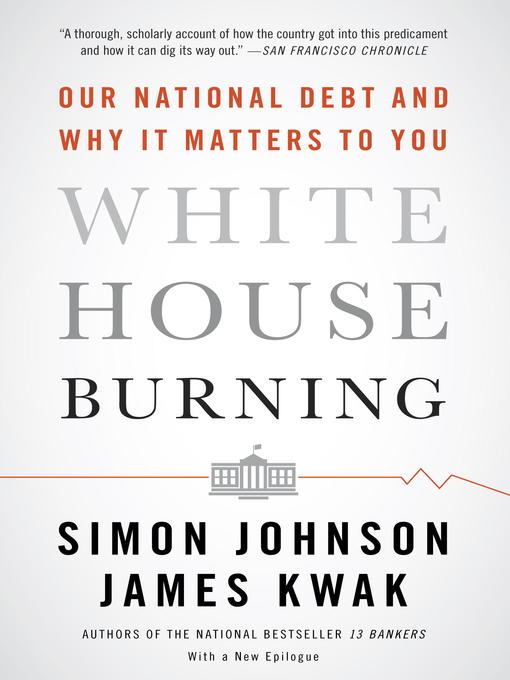
White House Burning
The Founding Fathers, Our National Debt, and Why It Matters To You
کتاب های مرتبط
- اطلاعات
- نقد و بررسی
- دیدگاه کاربران
نقد و بررسی

April 1, 2012
A detailed, lucid, sure-to-be controversial account of whether the massive national debt of the U.S. government actually matters. Johnson (Entrepreneurship and Management/MIT) and Kwak (Univ. of Connecticut School of Law), who collaborated on 13 Bankers: The Wall Street Takeover and the Next Financial Meltdown (2010), explain how the national debt began to grow, why it is willfully misrepresented by politicians and misunderstood by much of the citizenry and whether it is ever likely to cripple the richest nation in the world. Their especially valuable insight is that the national debt is a major problem only if it is perceived as a problem. Because politicians have advertised the debt as a problem, perception has overtaken reality. For the typical American voter, the conundrum becomes one of individual responsibility versus collective responsibility. Government measures to reduce the national debt by reducing assistance to individuals means those individuals will have to assume more responsibility for their health care, retirement accounts, formal education, transportation and workplace safety. On the other hand, government measures meant to protect vulnerable members of society will have to be financed through the assumption of greater debt, unless political leaders are willing to increase taxes on businesses as well as wealthy individuals. This is complicated stuff, but the clarity of explanations from Johnson and Kwak ease the pain. The authors are especially strong in their demonstration of the fallacy of likening government debt to the debt of an individual family. Many families are morally opposed to debt in their household and may assume that government debt is a moral issue. Johnson and Kwak explain why morality should have little place in any sane debate about the amount of national debt. A book to be enjoyed by ideologues and non-ideologues of all stripes because it is not a tract for Republicans, Democrats or any other partisan organization.
COPYRIGHT(2012) Kirkus Reviews, ALL RIGHTS RESERVED.

November 1, 2011
Once upon a time, explain the authors of the best-selling 13 Bankers, the U.S. government could pay off its debt. Then came the 1970s, with Reaganism, macroeconomic change, and demographic shifts that spurred the growth of entitlement programs. And then came the recent economic collapse. Add in some intractable political attitudes, and you have a debt that's very hard to reduce--and the authors are here to explain how it affects you every day. Here's betting that no one will agree with everything they say--and that what they say needs to be heard. With a nine-city tour.
Copyright 2011 Library Journal, LLC Used with permission.

























دیدگاه کاربران